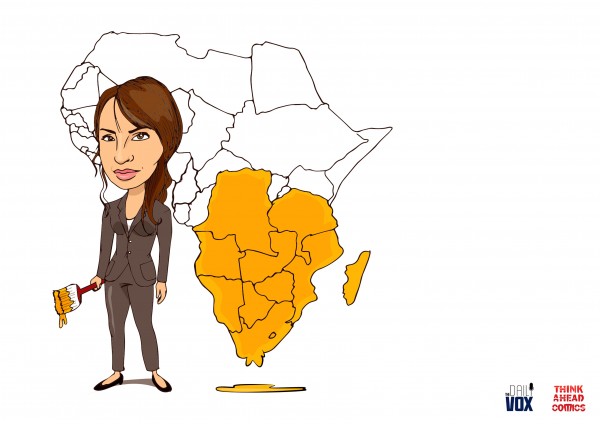Each week award winning journalist Kristen van Schie brings you all the news that’s worth knowing from across the SADC region. Here is this week’s SADC wrap.
Zambia
After weeks of speculation about his health, a newspaper in Israel has reported that Zambian President Michael Sata has been discharged from a hospital there.
The paper said he was also “not in critical condition†while being treated.
His youngest son, meanwhile, has reportedly left Cape Town to visit Sata at some unknown destination – presumably Israel.
Rumours have swirling around the state of Sata’s health, much of it caused by the government total secrecy on the subject. In a lengthy open letter in Zambian newspapers, president of the Heritage Party Brigadier General Godfrey Miyanda decried the current confusion about what exactly is happening: “The Constitution of Zambia is clear and predictable in guiding what should happen when the President is incapacitated or is suspected to be incapacitated. However the present inaction is either due to lack of knowledge or stage fright by those who ought to have acted. In this regard the Cabinet must surely take full blame.â€
It’s enough for Zambia Watchdog to put out a report explaining what happened when Malawi’s former president Bingu wa Mutharika died.
“While Zambians pray for the safe recovery of the head of state, many are wondering what would happen in the unfortunate event that he is incapacitated or even passes away while in office,†it asks. “Would the constitutional process for the transfer of power be correctly observed? Would the military intervene to the benefit of certain parties, or would competing factions of the ruling party try to break the rules to grab power?â€
DRC
US Vice President Jo Biden’s wife, Dr Jill Biden, spent some time in the DRC last week to “highlight the importance of girls’ education and women’s participation in government, the economy, and civil society in accelerating economic development, improving health and educational outcomes, strengthening democratic governance, and fostering peace and securityâ€. That’s a lot to fit into two days, including a little Fourth of July soiree – but no doubt all DRC’s troubles are over now.
Oh no, wait, they’re not.
Because State-owned metals and mining company Gécamines needs to lay off a whopping 6000 employees.
Workers at the mine recently went on strike after wages went unpaid for three months because of company cash flow problems.
In truth, the company cannot actually afford its staff. And therein lies a bit of a conundrum: because while Gécamines says worker numbers are swollen and unaffordable and need a serious trimming of 6000 jobs, it also can’t afford to pay out 6000 retrenchment packages.
That will cost US$ 160 million, money which the company apparently doesn’t have.
Of course, the upside of all this is knowing that unions are apparently going strong in the DRC.
Swaziland
A week after being cut from a lucrative trade deal with the US, Swaziland’s government was reportedly nowhere to be seen at the US ambassador Makila James’ Fourth of July bash. Given that the country was stripped of it’s AGOA status for failing to protect workers’ rights, it should have come as no surprise that these would get a mention in James’ speech. But boy, did she give a speech.
“After years of raising US Government concerns about the lack of respect for internationally recognised worker and fundamental human rights – particularly freedom of speech and freedom of assembly – the Swazi Government chose not to meet any of the five benchmarks which were given to them by the United States Government as a way to demonstrate measurable progress on these critical issues. As a result, the country cannot participate in this important programme beginning next year,†she said, according to the Swazi Observer.
This all in the same week that journalist Bheki Makhubu and human rights lawyer Thulani Maseko were in court for writing articles critical of the country’s judiciary – which she mentioned as well: “This case compels all of us to consider what are the consequences for Swaziland, or any country, if no one is allowed to question the actions of the judiciary? What other mechanism exists to keep its power in check? If the actions of the judiciary are in accordance with the law, then surely they will stand up to scrutiny. And if they are not, then they deserve to be exposed for what they really are.â€
That quote from this article – which also questions if James crossed a diplomatic line with her comments.
Because shooting the messenger works out so well for you, hey?
Malawi
Muslim traditional leaders in Malawi have urged for condoms to be banned – for fueling the HIV/Aids pandemic. They’re apparently grand with condoms being used IN marriage, but not OUTSIDE it. This explanation just kills me: “Unmarried people are having sex for fun because there are condoms. But if you observe in Islamic countries like Saudi Arabia where condoms are banned, the HIV and AIDS prevalence rate is very low. People are using condoms here, when they sleep with strangers, but when they get to know each other, they stop using them… If these were banned, people could be afraid to be promiscuous, because they would doubt each other’s statuses.†The country’s local Catholic leaders are apparently totes keen for this idea, too.
Wow. Just… wow.
Shorts
Madagascar’s president Hery Rajaonarimampianina met with Catholic pope Francis last week, basically to chat about how great the church is, according to this piece. Presumably, Rajaonarimampianina also asked for hellfire and damnation to be wrought unto those grafting sonsabitches who made off with 40 percent of the country’s budget.
Somewhat predictably, just as talks resumed in Mozambique between the government and opposition party/rebel group Renamo, there were two fresh attacks that left two people wounded. The talks centre around whether or not foreign observers should be around to observe a cessation to hostilities in the country, and they’ve been on again-off again for weeks now.
Namibia has turned down a request from the Security Council to send troops to the troubled Central African Republic. According to the New Era, the country’s defence minister Nahas Angula said last week the country did not have the capacity to support peace enforcement missions, which involve military intervention.
In Tanzania, the government is frustrate that efforts to curb the sale of second-hand underwear – banned last year – is being scuppered by customers. The country’s Bureau of Standards said it would “intensify surveillance as well as education programmes to the public on the effects of wearing second-hand underwearâ€.










